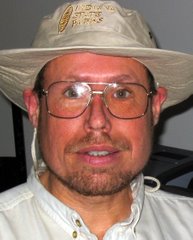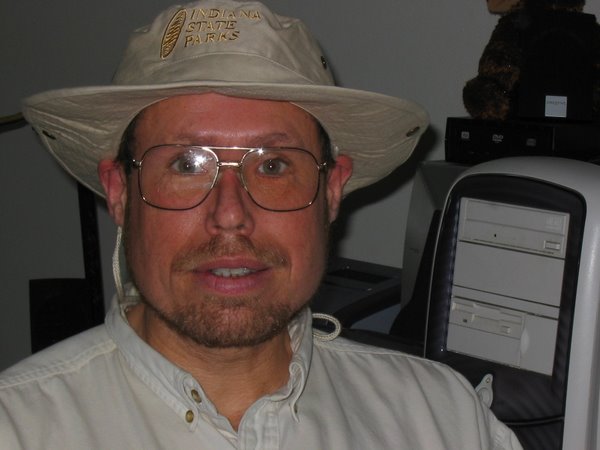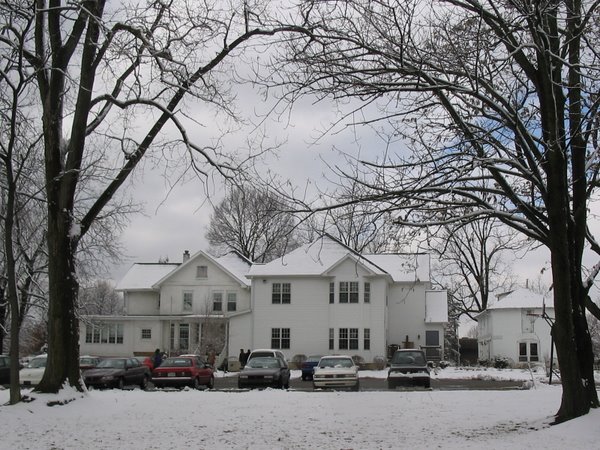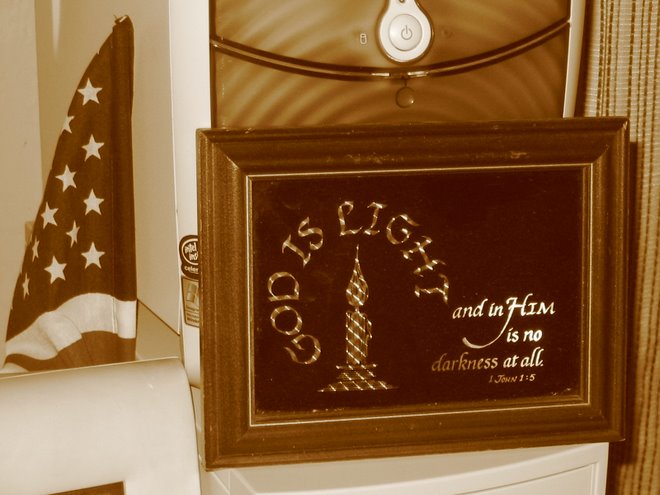© 2006 Mark Robert Gates
I have been a client of Indiana's, Fort Wayne community mental health center, Park Center, for many years. During that time, I have received services, as well as, serving as a volunteer in various capacities. After receiving Appreciative Inquiry training, my first voluntary position was participating on the, Steering Committee, that designed the new, Transitional Care Services (TCS) facility, and its programs, and then chairing the committee for aiding family involvement in TCS treatment. My involvement in these steering committees, led to a mutual decision, to make me an employee of Park Center, as a peer-support specialist. I felt, concerned this position, would impact my level of participation, at the Carriage House clubhouse, however, felt it was important for me to attempt working again.
The application process took months, setting up appointments, and interviewing with the brass. After exploring all the avenues, and attempting to find a place that would take advantage of my abilities, I was hired to teach computers, at, Park Center’s Drop-In Center (DIC). The premise was simple enough, and the intentions were all good enough, however, we were all years ahead of the current funding streams, for mental illness treatment. It seems you cannot pay for education with Medicare and Medicaid, and the administration, found it difficult to justify my position, without being reimbursed for my services.
All the other roles we tried to place me into, at the DIC, did not work out. I had no idea what I was supposed to be doing, and not a clue, that I was not doing the job right. I have, only little education in psychology, and none in social work, so I had to leave the position. I also received an offer, from the local office of Vocational Rehabilitation to put me through, computer trouble shooting and repair classes, and try to get me certified. A much better open door than in the beginning.
As a condition of my employment with Park Center, I was unable to receive services while being employed, and since the clubhouse is a service under the umbrella of Park Center, and they removed me from the books when I got hired. When I attended the clubhouse on my days off, I was considered a volunteer, which meant Medicaid would no longer reimburse the Carriage House. I began seeing, instead of Park Center treatment staff, an outside doctor and an outside therapist. Also, in the jumble, my payee-ship for my social security check transferred from, Park Center, first, to the local trustees office, and then finally back to myself.
After the disappointment of loosing my job, I walked back into Carriage House. They all welcomed me with open arms, and told me how much they missed me, all without any regard as to whether or not the clubhouse got paid. I am now helping with my computer skills, within the day program, and helping out any other way I can, without any reimbursement coming to Carriage House since their billing is strictly through Park Center. Also, I am again volunteering for Park Center, writing essays about my successes and failures in self-help and rehabilitation, to be combined into a binder for groups. Which would finally start my career as a writer, something I have dreamed about since high school. My writing skill has long been recognized and championed at Park Center and Carriage House. Also, I am taking the initiative to try starting peer-led, self-help support groups. If we find there is funding, I may actually be rehired by Park Center as a peer-support specialist for aiding with, peer-involved and peer-led support, in their OutPatient Stabilization (OPS) program.
The clubhouse model has been around since 1948, but is relatively new to Indiana. Its approach to mental health rehabilitation is unique and very empowering. People are referred to as members, not clients or patients, and we all have a voice in what happens in the clubhouse. The club is governed by a set of standards provided by, our, International Center for Clubhouse Development (ICCD) http://www.iccd.org/. All of which are there to see that we all are treated with respect and dignity. As an example: There are no closed-door staff or member only meetings in a clubhouse, and member’s records are accessible to each individual at any time. This is mandated by the Standards for Clubhouse Programs, and is a requirement of certification.
We do not come to the Carriage House to be maintained. We are here to participate in rehabilitation and encouraged to form lasting friendships, and work on educational and employment goals. Working back into our communities' mainstream and employment, is the chief objective, for those who choose to. The clubhouse builds our self-esteem, by giving us a sense of belonging, and prepares us to re-enter our community, and again work.
In every program I attended at Park Center, other than Carriage House, I was on my own as far as rehabilitation goes. Having to work with Vocational Rehabilitation separately if I wanted a job, and then only finding part-time work that was discouraging and paid little. Without specialized training and the Carriage Houses help I would still be on my own.
The first time I was in OPS therapy, I did not know my diagnosis, and I could not explain what was happening to me. The group therapy was necessary, and fruitful in turning me around toward, being aware of my condition. Over time, I grew to a plateau, and stopped, just maintaining my existence at a level requiring constantly being taken care of, and where I found no hope of ever rising above that level, in my life. Meanwhile fighting everyday, not to sink lower, and giving in to the criminal impulse to write bad checks, to gain what I could not otherwise have, and thereby have what otherwise was hopeless. Or, so I thought, for such was my mind-set then.
Much of my life has been lived, with people telling me I cannot be me. I was caught up in grandiose thinking, imagining that in order to succeed in life, I had to create a completely imagined and manufactured self. I became, completely isolated from the whole community, on the outside of Park Center’s, however, I am accepted at Carriage House, as myself, and not required to be working towards becoming, someone else. I am my own person with a cherished personality and with something worthwhile to contribute. Since being taught that I can do something of value for someone, I make my own opportunities. Moreover, I have marketable computer and communications skills. Now I am free indeed, and an empowered citizen advocate, with a future.
This powerful boost to my self-esteem, also, lifts my values, and gives me the will to live a better life, and the desire to succeed at being me, in a friendly, and social way. Respect for the law, and a prudent sense of direction, are lasting changes in my psychological profile. Recently, I had the opportunity to train with the police on nonviolent crisis intervention. I want to continue to sow on the right side of the law, and reap the benefits, of living the good life. All of which is inspired, by the Carriage House, taking time to care about my life, which in turn destroys the allure of criminal activity. I want what is best for me now, too.
The nature of our handicap, when we suffer from mental illness, is such, there need to be rehabilitation programs, like Carriage House. Programs like this, need a reliable funding source, as well as the ability for self-determination, something they do not have now. The clubhouse model programs and philosophy are dramatically different from mainstream medical models, such as mental health centers.
Mental health treatment needs to be more holistic. We must begin to treat the whole person; realizing that improving their education is as important as taking medications. Getting a job is as needed as seeing a therapist. Having a social life is paramount in sharing love. Funding that focuses, so heavily on just the medical aspects of the person, forces us to see only the disability. We need a place to go where we are people first, with potential, not problems and complex disorders.
Incredibly, putting the necessary dollars, into rehabilitation through programs like our clubhouse model, will increase our efficacy, both Carriage House’s, and mine, and enrich the lives of millions of those who suffer from mental illness. The clubhouse does look at the whole person: their educational needs, social needs, vocational and medical. This approach, puts us people, back into the mainstream, and ultimately reconnects us with real life. Please give us the resources necessary, to nurture our whole being. Please invest in, what succeeds where others fail, and fully fund the clubhouse model approach.
– Mark Robert Gates, copyright 2001
Subscribe to:
Post Comments (Atom)




No comments:
Post a Comment